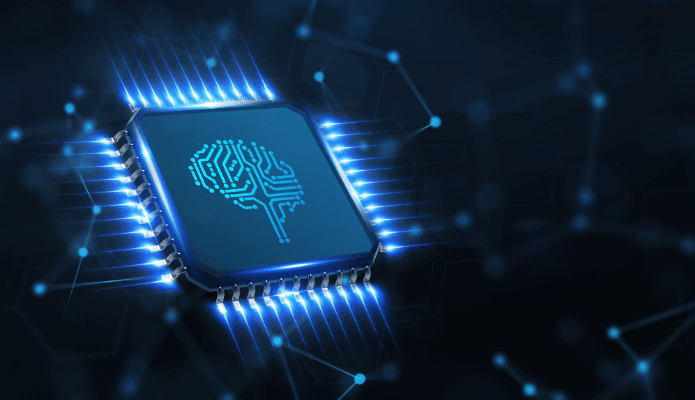As we all know too well, the technology industry has long been dominated by men. However, it seems that the tide is starting to turn; the more women that pursue careers in STEM fields and change the status quo, the sooner the gender pay gap can be closed and new perceptions of the industry can begin to take shape.
It’s no secret that women bring fresh ideas and diverse perspectives to a variety of tech fields like cyber security, web development, and data analysis. However, systemic barriers and biases (both conscious and unconscious) still exist that can make it difficult for women to advance and succeed in tech roles. Ironically, these are the very roles that are pivotal in helping to create more equal opportunities.
This is where artificial intelligence (AI) comes in. Its continued influence and advancements in business have begun to change how many companies approach routine (and traditionally human-dominated) processes. It’s widely agreed that careful supervision and oversight are still needed to ensure that tech companies can reap maximum benefit from AI adoption, and it’s the female perspectives that could prove instrumental in ensuring AI is ethically and strategically adopted.
Therefore, there’s an argument to be made that AI is levelling the playing field and empowering women in tech in various ways.

Streamlining Tedious Tasks
A notable challenge that women in tech face is being saddled with lower-level responsibilities that distract from more strategic work.
So many working week hours are dedicated to administrative tasks, data collection and aggregation, which disproportionately fall on women. This results in little to no time to add their creative and innovative ideas to projects that require more forward-thinking.
AI and automation solutions enable women to offload these repetitive, arduous and time-consuming tasks and focus their energy on high-value priorities. In turn, dedicating more creativity and resources to work that drives more value potentially increases retention rates and leads to greater workplace satisfaction.
Here are just some ideas of how mundane workplace tasks can be entrusted to smart AI and machine-learning technology:
- Smart virtual assistant tools can schedule meetings, format documents, take meeting notes, generate ideas among other tasks. This automatically frees up finite resources and energy, for women tech professionals to tackle more rewarding work.
- Generative AI-powered content curation tools such as ChatGPT, Claude and Rytr can assemble topics, pull metrics, create briefs, code comments, and create basic short- and long-format content such as blogs, articles and training material. Doing this in minutes rather than hours allows women to focus on top-level analysis and strategy.
- Recruitment software can be leveraged to ensure that CVs are autonomously and accurately screened to liberate hiring managers from manually assessing each one in meticulous detail. In turn, this can make initial candidate shortlisting more automated and assessments easier to conduct. Such technology assists companies in hiring tech professionals more promptly, but still with the right level of intervention and level of detail.
- AI testing and QA solutions can autonomously find bugs and errors in code. This can include patches and updates normally managed manually, which, in turn, frees up developers to maximise their time designing or developing systems, apps or websites.
Enhancing Efficiency and Accuracy
AI programs and tools not only speed up time-consuming tasks, they also boost team productivity by making work more efficient and accurate.
AI is naturally intertwined with technologies like machine learning and natural language processing which can augment and support the instinctive creativity of the human brain. Internal teams across the organisation can get more done in less time, with the right balance of AI-powered automation and effective supervision
- Project management platforms assist in analysing timelines and resources to optimise workflows. They can provide reminders, track blockers and automatically reorder tasks to keep projects on track, keeping productivity high.
- CRM software can be integrated with AI smart learning tools and plugins to make documents and follow-ups easier to create, enabling sales teams to make quicker, more decisive decisions.
- Automated code reviewing tools help to quickly scan for errors and suggest improvements early in the development process, leading to higher quality with less manual oversight, without eliminating it completely.
- HR and legal teams can use innovative legal case management software to assess ongoing claims, complaints, or disputes and ensure their swift and decisive resolution.
Minimising Bias and Increasing Opportunity
In addition to assisting in day-to-day work, AI also helps address institutional biases that can impede women’s advancement in the tech sector.
Algorithms, by their very nature, work ‘without prejudice’, even though there is research to suggest that their development is often riddled with unconscious biases. However, effective deployment does open up opportunities to reduce that barrier.
- Blind recruitment tools remove names and gender indicators from applications so prospective candidates are evaluated equitably on skills and experience, with the aforementioned indicators not providing a barrier to gender diversity and inclusion.
- Data analytics uncover pay, promotion and retention disparities along gender lines so companies can rectify them.
- AI-powered talent assessment tools evaluate skills objectively, matching candidates to opportunities based on competencies rather than connections.

Promoting Inclusivity and Retention
Creating an inclusive culture where women feel supported enables tech companies to attract and retain diverse talent.
AI, if used responsibly and with effective oversight, provides data-driven insights to help teams continue to bridge the gender and diversity gaps that have long permeated the tech sector.
- Sentiment analysis tools gauge employee satisfaction levels across demographics to identify areas for improvement.
- Predictive analytics help to analyse problem areas, often down to a task level, to identify where management can intervene and provide mentorship, resources and support to their hard-working staff. In turn, if more tasks can be automated and satisfaction levels raised, this could significantly impact turnover.
The age of AI continues to throw many surprises and unexpected curveballs at organisations in the tech sector seemingly every week. However, upon reflection, while its future impact remains unclear, it would be short sighted to suggest that responsible use of AI lacks thrilling potential for women pursuing careers in technology.
Automating mundane and repetitive tasks can free up time for everyone, including women in tech. By enhancing productivity in key areas and minimising obstacles, we make room for creative exploration. This enables women to better utilise their strengths and contribute valuable insights to their companies and teams. While it’s evident that the industry itself needs to see widespread change and innovation before perceptions and biases can be truly eliminated, the emergence of more AI can pave an interesting path for more women to enter the sector empowered and energised. The entire industry benefits when technology works for women rather than against them. Therefore, if cultivated and managed responsibly, AI can contribute to a more diverse, inclusive and equitable culture where talent will thrive.






